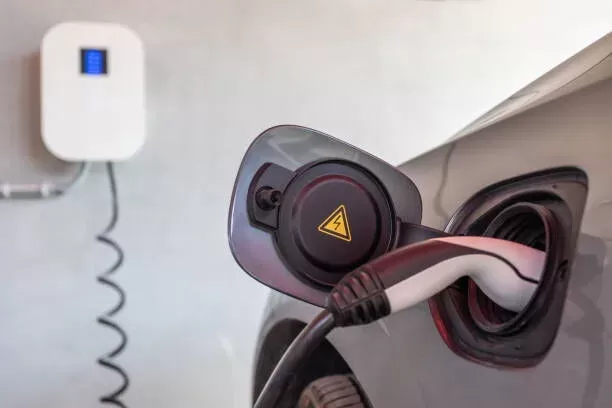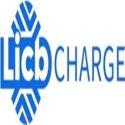Notifications

11 minutes, 6 seconds
-25 Views 0 Comments 0 Likes 0 Reviews

As a leading EV charger manufacturer in China, LiCB Charge delivers reliable AC and DC electric vehicle charging stations along with comprehensive charging solutions.
As electric vehicles (EVs) become more common, home EV charging stations are becoming a crucial part of the green energy transition. With a home charging station, EV owners can enjoy the convenience of charging their vehicle right in their own driveway or garage, eliminating the long wait times often experienced at public charging stations. But what exactly makes up a home charging station, how does it work, and how can you set one up at home? This guide will walk you through the essential components, how to choose the right charger, and the steps for installation.
A home charging station consists of several key components, each playing an important role in ensuring safe and efficient charging of your electric vehicle. Here are the main parts of a typical home charging station:
Housing
The housing is the outer shell of the charging station, designed to protect the internal components from weather conditions like rain, wind, and extreme temperatures. It’s made from durable, weather-resistant materials and contributes to the overall aesthetic of the station, ensuring it blends well with your home or garage.
Charging Controls
The charging controls manage the flow of electricity between the charging station and your vehicle, ensuring that the battery is charged at the correct voltage and current. These controls prevent overcharging or overheating, protecting both the car’s battery and the charging station. Many modern systems include smart technology, allowing the charger to adjust the speed of charging based on the time of day or battery condition, ensuring the longevity of both your car and the charger.
Connectors
Connectors are the physical interface that links your vehicle to the charging station. In most European countries, the standard connector for home EV chargers is the Type 2 connector, which is used for AC charging and is compatible with most electric cars. The connector may either be permanently attached to the charging station or removable for flexibility.
Electricity Meter
Some home charging stations come with an integrated electricity meter that tracks the amount of electricity consumed during charging. This feature is helpful for calculating the cost of charging and monitoring your energy usage. It can also help you save on your electric bill, especially if your local electricity rates vary.
Ground Fault Current Interruption (GFCI) Breaker
The GFCI breaker is a vital safety feature in any home charging station. If a fault is detected, such as an electrical leakage, the GFCI breaker will disconnect the power supply immediately, preventing electrical shock or damage to the system. Many home chargers come with this built-in safety measure.
Circuit Breaker
The circuit breaker is another essential safety component, protecting the electrical system from overload or short circuits. It automatically cuts off the power supply if it detects excessive current, preventing potential fires or damage to the system.
Cable
The cable carries electricity from the charging station to your vehicle. It is often permanently attached to the charger, although some systems offer removable cables for flexibility. The length of the cable varies, but it’s important to ensure it is long enough to reach your car’s charging port without being strained.
Investing in a home charging station for your EV offers more than just convenience. With a home charger, you can charge your vehicle at any time without having to find a public charging station. This saves time and makes owning an electric car more practical.
In addition to saving time, home charging stations are usually more affordable in the long run compared to public stations. Public charging fees tend to be higher and can vary depending on location. At home, the cost of charging is generally lower, as it uses your home’s electricity.
Home charging stations also contribute to sustainability by reducing the need for fossil fuel-based energy. Many stations can be integrated with solar power systems, allowing you to charge your vehicle using green energy, further reducing your carbon footprint.
As the demand for electric vehicles grows, so too will the technology behind home charging stations, offering faster, more efficient, and more environmentally friendly solutions.
The speed at which your EV charges at home depends on the power rating of the charging station. Most home chargers, also called wallboxes, provide 11 kW of power, which can fully charge a vehicle in about 4-6 hours. For most users, this is sufficient to fully charge the vehicle overnight.
If you need faster charging, some stations offer DC fast charging capabilities, with power ratings up to 50 kW. These chargers can charge a vehicle in as little as one hour, depending on the size of the battery. While DC fast chargers are typically found in public charging stations, they may become more common in home installations as demand for faster charging grows.
Keep in mind that charging speed can also vary based on your vehicle's battery size and condition, and the type of charger used. For example, larger batteries may take longer to charge, and some older EVs may not be capable of charging at the highest speeds.
Setting up a Level 2 EV charging station at home is fairly straightforward, but it’s important to hire a licensed electrician to handle the installation to ensure safety and compliance with local codes. Here’s an overview of the process:
Choose the Location
Decide where to install the charging station, ideally near your garage or driveway where your vehicle is parked. Make sure the location is close to your electrical panel for easier wiring.
Check Electrical Capacity
Your electrician will assess your home’s electrical system to ensure it can handle the 240V circuit required for a Level 2 charger, which is more powerful than the standard 120V used for most household appliances.
Install the Charging Station
The electrician will mount the charging station on the wall, run the necessary wiring to the electrical panel, and install a dedicated circuit breaker for the station. The wiring must be done in compliance with local safety codes.
Test the Installation
Once the installation is complete, the electrician will test the system to ensure everything is functioning correctly. They will check the charger, the safety features, and the power supply.
Enjoy Convenient Charging
Once everything is set up, you can simply plug in your vehicle when you return home, and it will be ready to go when you need it.
There are three main types of electric vehicles (EVs), and each type has different charging needs:
Battery Electric Vehicles (BEVs): Fully electric vehicles that rely entirely on batteries for power. These vehicles typically require a Level 2 charger for fast charging.
Hybrid Electric Vehicles (HEVs): These vehicles combine an electric motor with a gasoline engine. They don’t require external charging as their battery is charged via regenerative braking.
Plug-in Hybrid Electric Vehicles (PHEVs): These vehicles can be charged via an electrical outlet or charging station, allowing them to operate in electric mode for short distances before switching to gasoline.
When choosing a charger, ensure it is compatible with your vehicle’s charging needs. For BEVs, a Level 2 charger is the most common and offers the fastest charging. PHEVs and HEVs may only need a standard Level 1 charger, depending on their battery size and charging requirements.
Home EV charging stations are becoming essential as electric vehicle ownership increases. These stations provide unparalleled convenience, cost savings, and environmental benefits. By understanding the components, installation process, and how to choose the right charger for your vehicle, you can ensure a smooth and efficient transition to electric driving. As the demand for EVs grows, home charging stations will continue to improve, providing faster and greener solutions for everyone.Know more about Google SEO Directory
China EV Chargers EV Charger Manufacturer Smart EV Chargers Electric Car Chargers Electric Vehicle Chargers Electric Car Charging Stations

